|
|
|
|
|
🌸Welcome to IPSI Live Updates!
|
|
IPSI’s mini newsletter and your source for important events and other opportunities! Take a look at what April has in store for you.
|
|
- Answer a survey on the impact of subsidies on SEPLS
- Grains of Hope Mobilisation received a Pioneers in SDGs Award!
- Daluhay’s Bioregional Resilience project recognized by the UN Decade of Ocean Science
- Join our webinar on acting for biodiversity at the landscape level
- Symposium on Noto Peninsula recovery and donation fund
- IPSI side events at CBD meetings in Nairobi
- Case study: How Nature-Based Solutions Can Help Reduce Flood Risks
Submit your case studies, publications and news about your activities to be featured in the next newsletter!
|
|
|
|
|
|
|
|
📗SITR Volume 10 Update
|
|
We would like to thank everyone who submitted a case study for volume 10 of the Satoyama Initiative Thematic Review and announce that selected manuscripts are now in the peer-review phase. We are also preparing for the IPSI Case Study Workshop 2024, where authors and reviewers can meet to share case studies and help each other improve their chapters.
|
|
|
|
📜Study on Subsidies and Incentives Impacting SEPLS and Cultural Landscapes
|

|
The IPSI Secretariat is collaborating with the Alliance for Mediterranean Nature and Culture (AMNC) and BioTrade Initiative to conduct a study that is supported by the Convention on Biological Diversity (CBD) Secretariat.
|
The study's objective is to gather valuable insights on the impact of subsidies on SEPLS, Cultural Landscapes (CLs) and similar areas. The goal is to support Target 18 of The Kunming-Montreal Global Biodiversity Framework, which aims to identify and reform subsidies and incentives that affect biodiversity to ensure its conservation and sustainable use.
|
Based on the analysis, we aim to offer policy suggestions, particularly for CBD Parties, on crucial subsidies and incentives at the SEPLS, CLs and similar landscapes and seascapes levels. Preliminary findings will be discussed at a side event during the 4th meeting of the Subsidiary Body of Implementation (SBI 4) in Nairobi in May 2024 (see Upcoming Events below), followed by a comprehensive analysis at the Sixteenth meeting of the Conference of the Parties to the CBD in October 2024. All responses will remain anonymous, but we will acknowledge all participants.
|
|
The survey will remain open until 9 May 2024.
|
|
For any questions or clarifications, please reach out to us at isi@unu.edu.
|
|
|
|
|
|
|
|
|
|
🏆Grains of Hope Mobilisation Receives Transferable Impact Award at the Pioneers in SDGs Awards 2023!
|
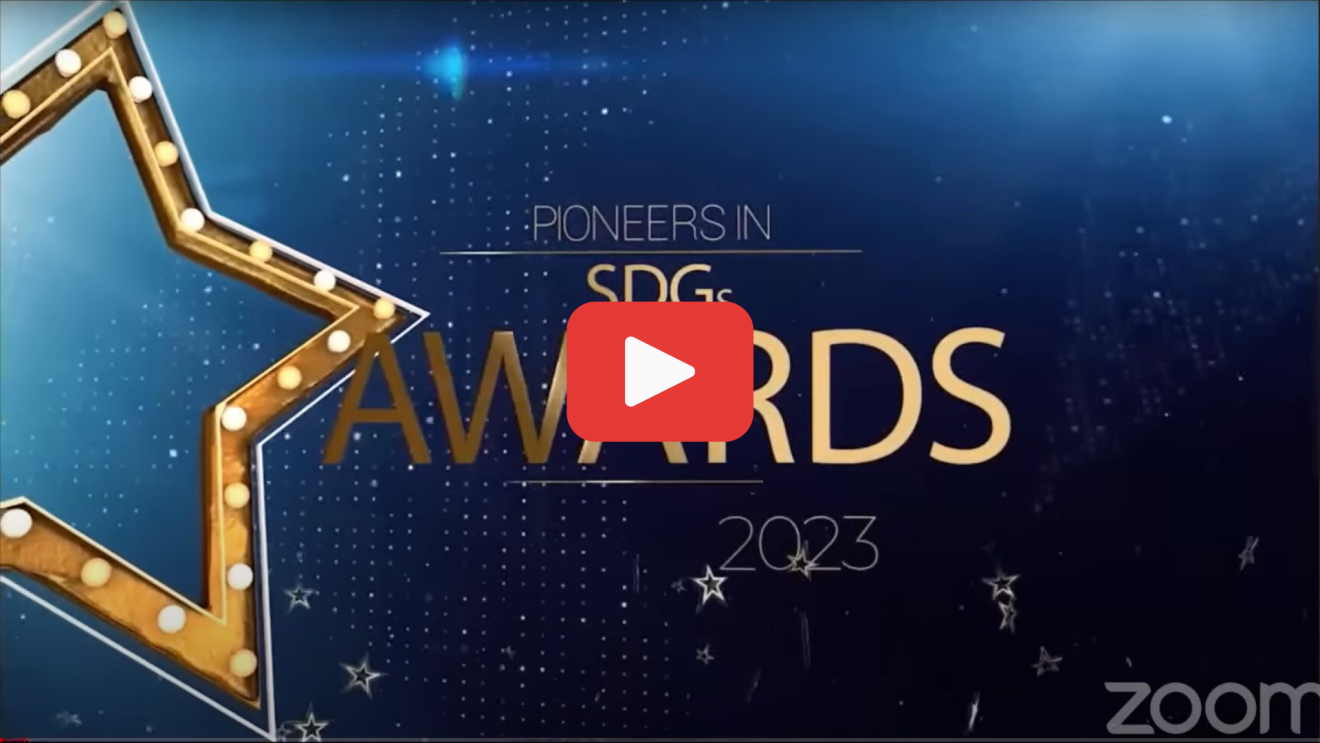
|
Grains of Hope Mobilization (GOHMO) has been honoured with the Transferable Impact Award at the Pioneers in SDGs Awards 2023. The award recognizes GOHMO's “Community Youth Empowerment and Mindset Change Project” in Malawi, which empowers youth and women through sports and education on democracy, health, entrepreneurship and conservation.
|
The Pioneers in SDGs Awards honour individuals and organizations that demonstrate unwavering commitment to sustainable peace, human rights and SDGs.
|
GOHMO's multisectoral approach enhances community resilience and contributes significantly to the United Nations' Sustainable Development Goals (SDGs). Their goal to establish 200 clubs and train 500,000 individuals demonstrates their deep commitment to positive change.
|
|
You can watch the Pioneers in SDGs Virtual Awards Ceremony 2023 on YouTube.
|
|
|
|
🐬IPSI Plan of Action 2030 Linked to the United Nations Decade of Ocean Science for Sustainable Development
|
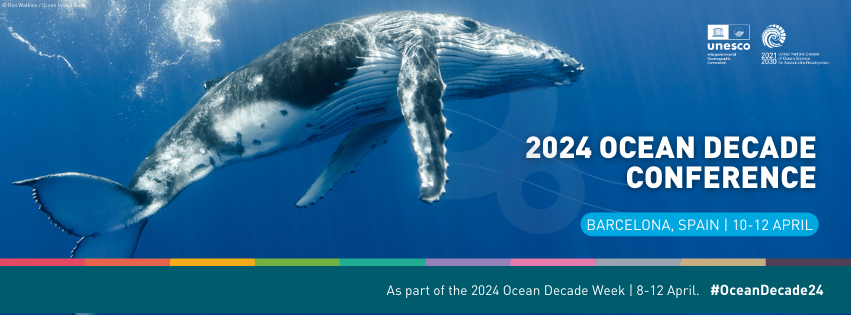
|
Under the leadership of Dr. Marivic Pajaro and Dr. Paul Watts, Daluhay’s project Bioregional Resilience: Professional Coastal Resource Management was a contributing partner in the FishSCORE presentation at the UN Ocean Decade Conference in Barcelona. FishSCORE represents the flagship decade program focussed on socio-ecological dynamics.
|
|
|
|
|
|
📝WEBINAR - Acting for Biodiversity at the Landscape Level
|
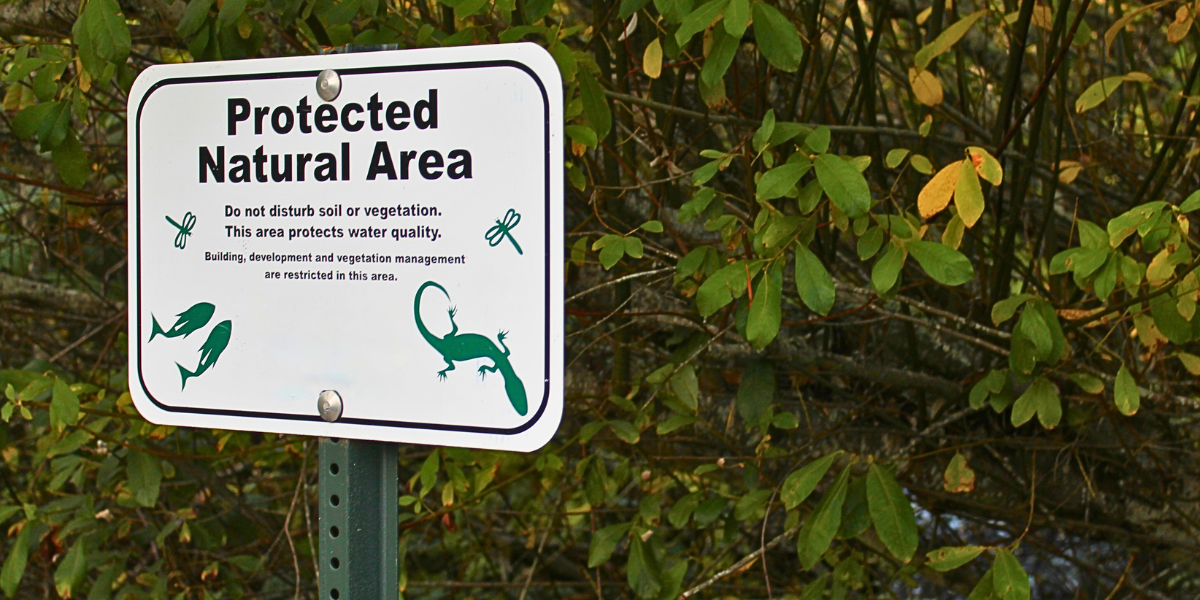
|
This webinar will present and discuss ways of managing, restoring, and conserving biodiversity at the landscape level, focusing on the national biodiversity strategy and action planning. Participants will give short presentations followed by a conversational question-and-answer session. Panellists will present tools for managing biodiversity at the landscape level and case studies on managing biodiversity at the landscape level.
|
|
Date: Wednesday, 8 May 2024
|
|
Time: 20:00 – 21:30 JST (online)
|
This event will be held in English.
|
|
|
|
|
|
❤️🩹SYMPOSIUM - Supporting the Recovery of Noto Peninsula: Building Back Better
|
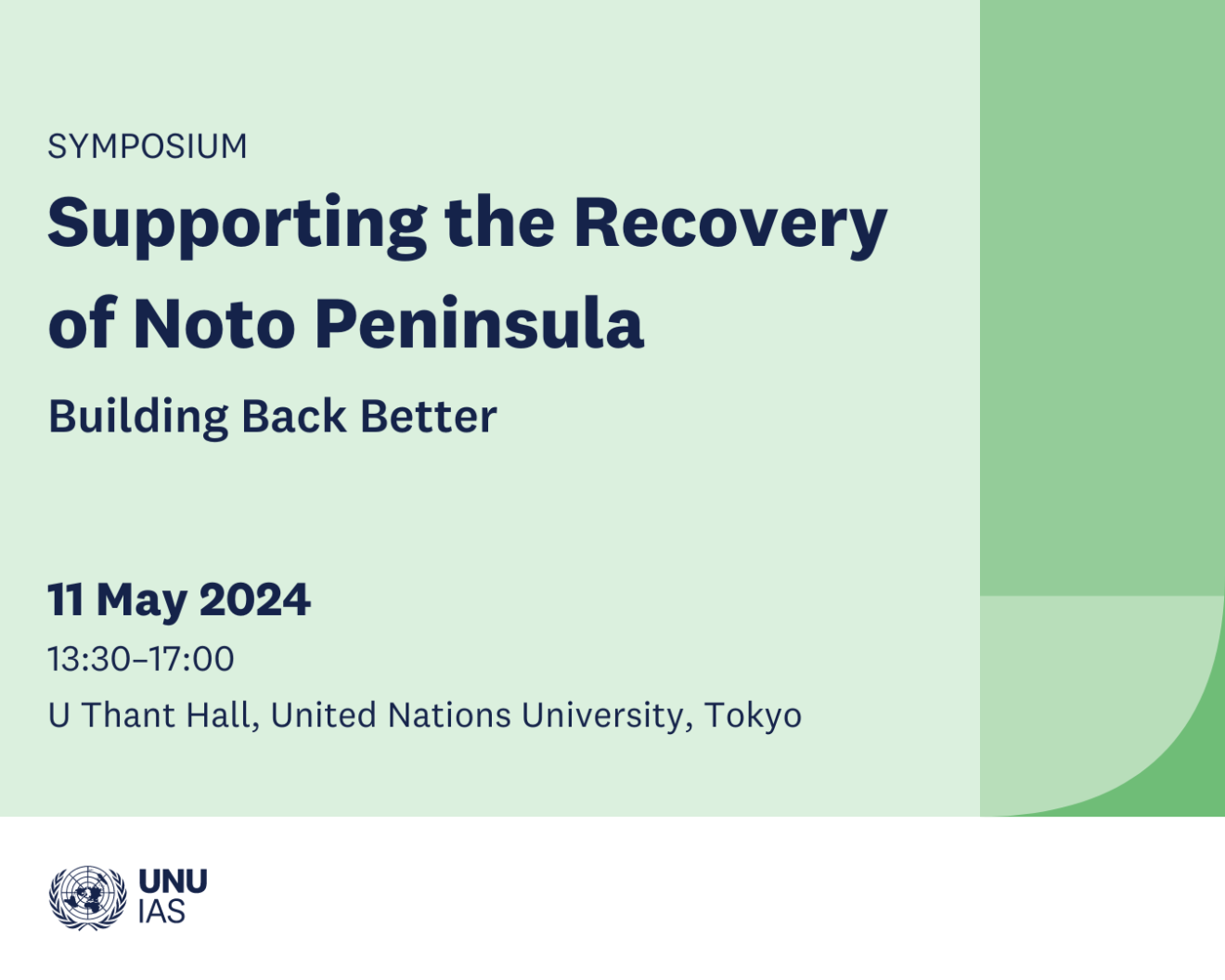
|
We are pleased to announce that UNU-IAS is co-organizing an international symposium focused on supporting recovery efforts in the Noto Peninsula, Ishikawa, Japan, following the 2024 Noto Earthquake. The event will gather municipal representatives from Noto and Sanriku, local stakeholders, educators, youth and government officials to address current challenges and a vision for a sustainable future by utilizing the local resources of Satoyama and Satoumi.
|
|
Date: Saturday, 11 May 2024
|
|
Time: 13:30-17:00 JST (in-person in Tokyo and online)
|
This event will be held in English and Japanese with simultaneous interpretation provided.
|
|
|
|
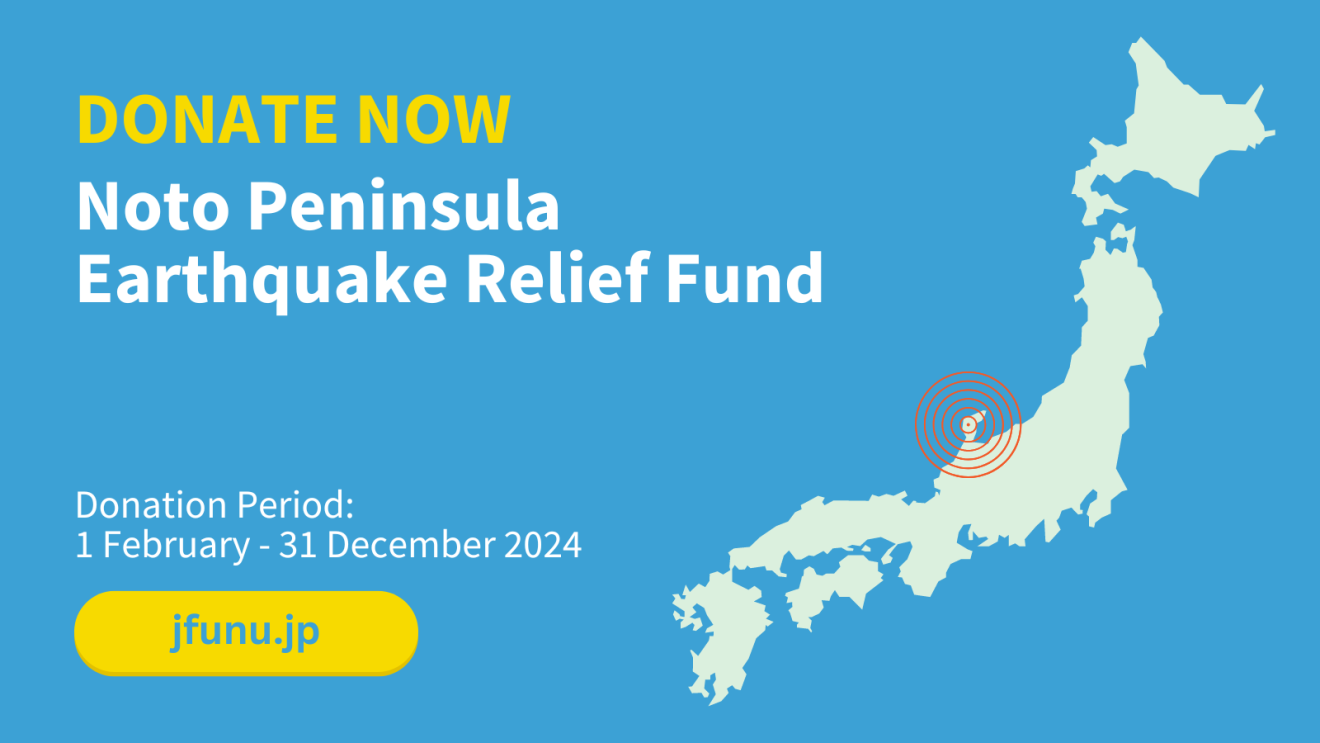
|
On 1 January 2024, the Noto Peninsula in Japan was struck by a devastating earthquake, affecting lives and livelihoods in the region. The Japan Foundation for the United Nations University (JFUNU) has started a donation scheme to aid in rebuilding the region and conserving the unique satoyama and satoumi landscapes.
Your contribution can make a meaningful difference.
|
|
|
|
|
|
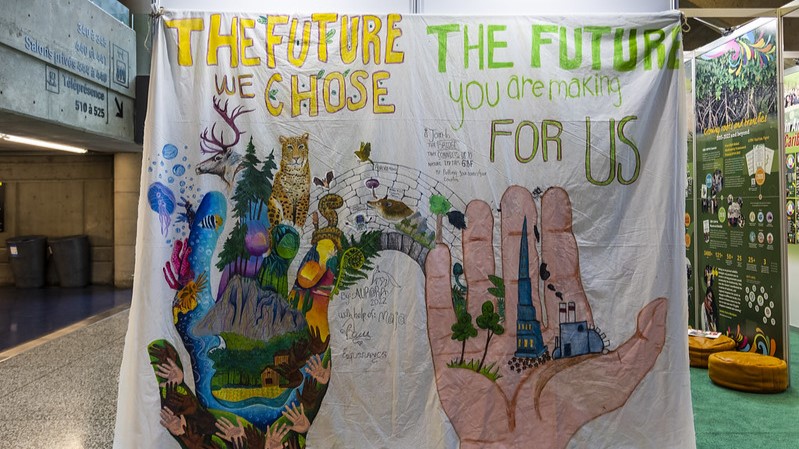
|
Landscape Approaches to Assessing Multi-stakeholder Contributions to the Kunming-Montreal Global Biodiversity Framework
|
Date: 18 May at 13:15 EAT
|
This side event will be part of the 26th meeting of the Subsidiary Body on Scientific, Technical and Technological Advice (SBSTTA) of the CBD.
|
The Kunming-Montreal Global Biodiversity Framework advocates for a whole-of-government and whole-of-society approach to achieving the CBD’s vision of realizing societies in harmony with nature. Non-state actors' contributions are crucial alongside governmental efforts, especially multi-stakeholder collaboration, like landscape approaches, which help integrate policies and practices for optimal solutions.
|
This side event will showcase IPSI collaborations, highlighting contributions from diverse actors like businesses, Indigenous Peoples, women’s groups, NGOs, and intergovernmental organizations. It will also discuss methodologies for assessing and monitoring such initiatives to support GBF implementation.
|
|
|
|
|
|
What Incentives Work for Biodiversity at the Local Level? A Conversation on Profiling Subsidies and Incentives for Sub-National Implementation
|
Date: 23 May at 18:15 EAT
|
|
This side event will be part of the fourth meeting of the Subsidiary Body on Implementation (SBI) of the CBD, which will review the CBD's implementation in advance of the next meeting of the Conference of the Parties (COP 16) in October 2024 at Cali, Colombia.
|
|
Target 18 of the Kunming-Montreal Global Biodiversity Framework calls for identifying and reforming harmful subsidies and incentives by 2025. Harmful impacts can be direct, affecting primary production and ecosystem integrity, or indirect, impacting traditional activities and resource availability.
This side event aims to identify consequential subsidies and incentives, especially for subnational biodiversity planning and implementation. It will also explore how stakeholders can contribute to monitoring progress towards this Target. Presentations and panellists will feature discussions on both positive and negative incentives, offering perspectives from governments, Indigenous Peoples and Local Communities (IPLCs) and international and NGOs to foster meaningful dialogue.
|
|
|
|
|
|
|
|
How Nature-Based Solutions Can Help Reduce Flood Risks
|
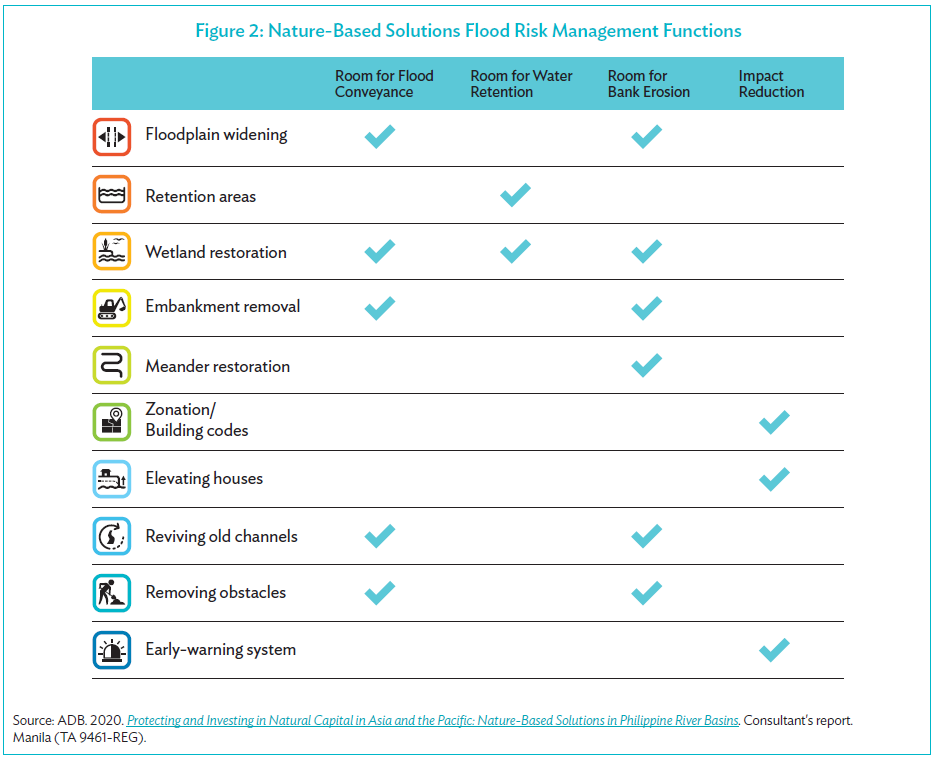
|
Figure 4. Log-cultivated Elaeocarpus sylvestris shiitake mushroom plantation.
|
Recent case study submitted by the Asia Development Bank.
|
The Asian Development Bank (ADB) is working closely with the Government of the Philippines to tackle flood risk management (FRM) across six river basins in the Luzon, Visayas, and Mindanao regions. Through the Infrastructure Preparation and Innovation Facility (IPIF), technical assistance loans are aiding in the development of comprehensive FRM master plans and infrastructure projects.
|
A regional initiative focused on Protecting and Investing in Natural Capital in Asia and the Pacific is enhancing FRM plans by blending nature-based solutions (NbS) through natural river management (NRM). This approach harnesses the resilience of natural river systems while minimizing negative environmental and social impacts. By selecting NbS options through multicriteria and cost-benefit analyses, these efforts are not only enhancing flood resilience but also providing models for replication in other river basins, demonstrating sustainable and cost-effective approaches to FRM.
|
|
|
|
|
|
|
|
|

|
Let us know if there are any changes in your e-mail address or contact information.
Secretariat of the International Partnership for the Satoyama Initiative
United Nations University Institute for the Advanced Study of Sustainability (UNU-IAS)
5–53–70 Jingumae
Shibuya-ku, Tokyo 150-8925
Japan
Tel: +81 3-5467-1212
Fax: +81 3-3499-2828
Email: isi@unu.edu
If you have been forwarded this newsletter and would like to SUBSCRIBE, you can do so on the IPSI website here.
|
   
|
|
|
|
The activities of the IPSI Secretariat are made possible through the financial contribution of the Ministry of Environment, Government of Japan
|
|
|
|
|
|
|
|